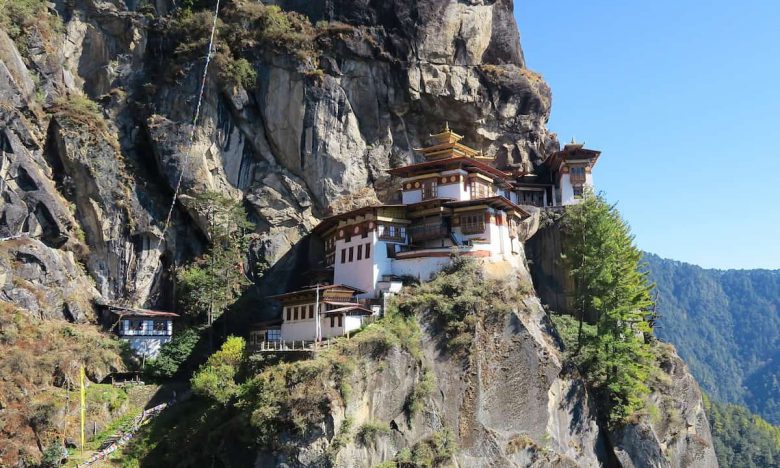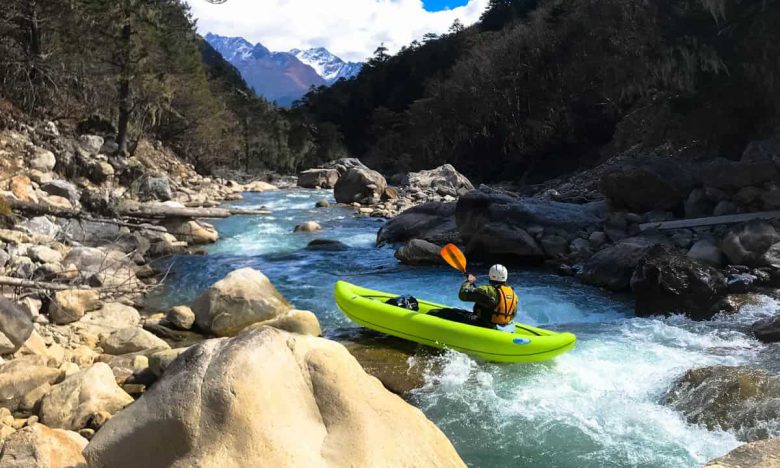Here are a few good travel trips and reminders for our Rivers & Dzongs of Bhutan trip.
1. The Paro airport will immediately make you smile. Upon arrival you’ll quickly notice the crisp, clean mountain air and an airport that looks more like a temple. You’ll also notice happy people who are excited you’ve come to enjoy their country.
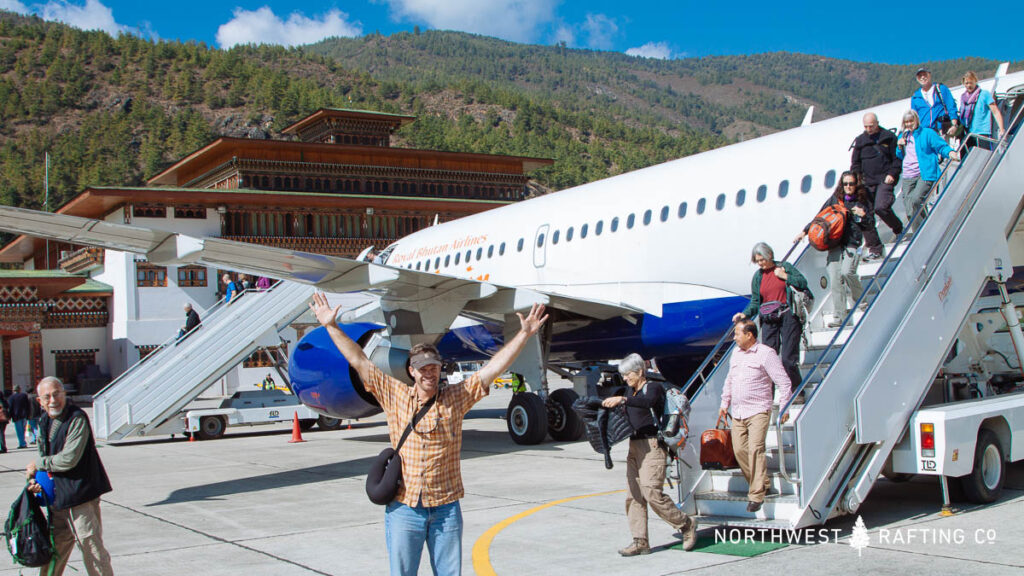
2. It’s easy to exchange money at the airport. I discourage exchanging all of it, but before leaving the airport, I usually change $100 into Ngultrum, Bhutan’s currency which is pegged to the Indian Rupee. It’s a good idea to bring crisp, new $100 bills as they may reject worn out money.
3. The traditional dress for males are Ghos and for females are Kiras. These are always worn by Bhutanese when visiting Dzongs, monasteries, and other important functions. If you want, you can purchase your own in Thimphu.
4. When we’re walking around town I like to wear comfortable pants and comfortable shoes with a sweater or sweatshirt as an extra layer in case it gets cold. In the monasteries and Dzongs I wear a button up shirt or sweater and nice pants. You’ll be taking your shoes on and off quite a bit so I wear shoes without laces like Blundstones. Down jackets are great for cold mornings and at high passes like Dochula (over 10,000 feet).
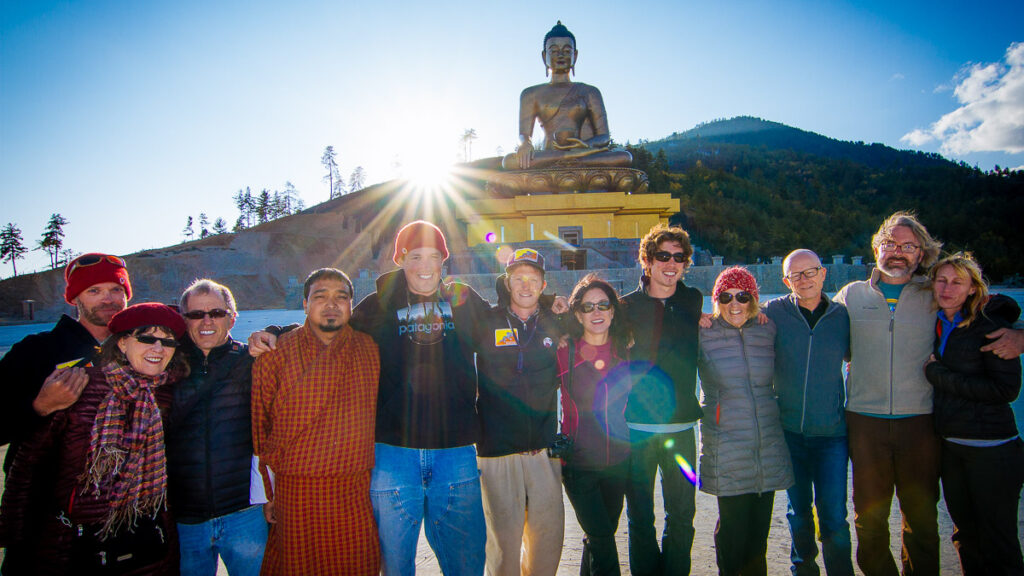
5. The dogs and cats are adorable, but please don’t pet them. Most dogs don’t have owners and are “community dogs” that live in a particular neighborhood. They generally sleep during the day and are up barking all night, especially in Thimphu. If you’re a light sleeper then it’s a good idea to bring ear plugs in case dogs are barking outside your room.
6. Power adapters are inexpensive and readily available at hardware stores in Thimphu. You can also purchase one ahead of time on Amazon.
7. Photographs are not allowed inside monasteries. A good rule of thumb is that if you need to take your shoes off then you can’t take photos. At most monasteries you can put your camera in your pocket, but at Taktsang (Tiger’s Nest) you’ll be required to leave your camera at the entrance.
8. Wifi is generally available at the hotels. It’s slower and less reliable than you’re probably used to. At times the internet can go down for a day or two.
9. Your cell phone will probably work, but be careful when you turn it on. Data and text messages can be astronomically expensive and your cell carrier may charge these fees even if you have an “international” plan. If you’re going to use it outside of Airplane mode, please call your carrier before your trip to learn more about the possible charges for data and roaming while in Bhutan. You can purchase an eSIM ahead of time or a tourist SIM card upon arrival at the airport.
10. At some point you will probably get shopping fever. There are so many beautiful statues, paintings, textiles, etc and you will most likely fall in love with some piece of art along the way. If you like to shop, then you’ll LOVE Bhutan and you should probably bring plenty of shopping money. We will make a visit to the handicraft school in Thimphu and I would recommend waiting until then before purchasing any items. At the handicraft school you’ll gain a wonderful appreciation for the artwork and have an opportunity to support the students by buying their work.
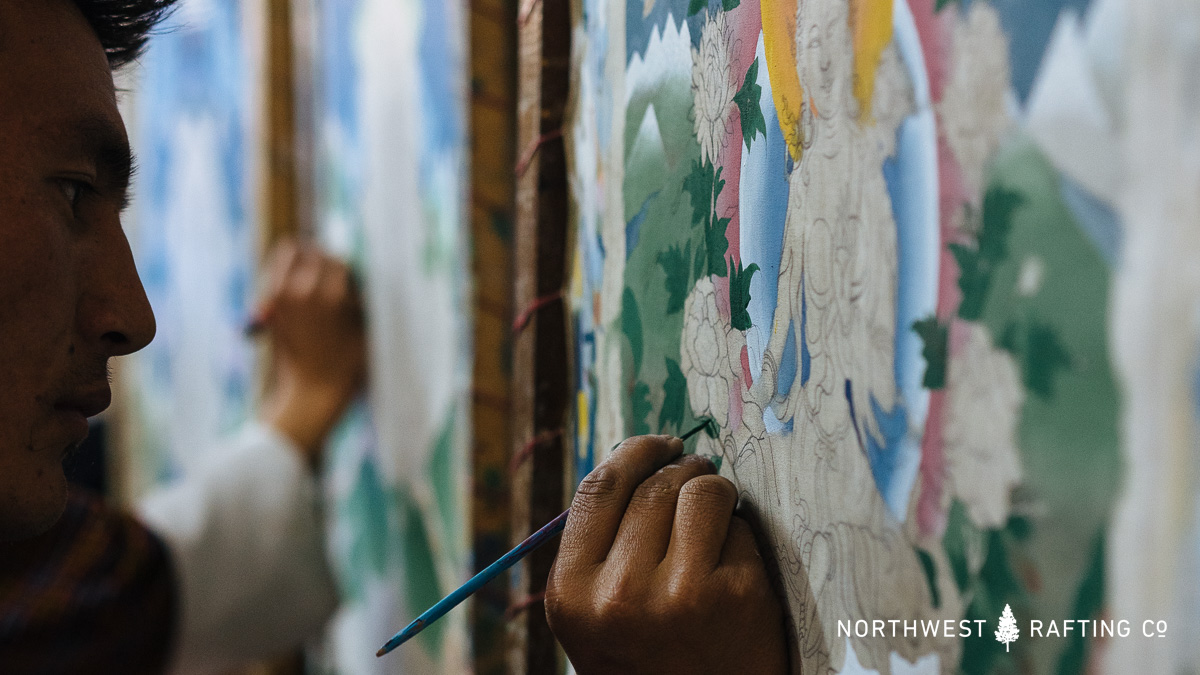
11. We may encounter beggars or you may want to give children some food or money. Please refrain as it encourages this behavior (which is currently very rare). If you want to give back to the people of Bhutan we will put you in touch with charities or schools you can donate to directly.
12. It is normal to tip our Bhutanese guides and drivers. If you want to leave them a tip I can collect it on the last day and distribute it to each of them. You do not need to tip at hotels and restaurants.
Prepare to smile, open your heart, drink lots of water, wear warm comfortable clothes, and be respectful. Every day in Bhutan is a gift!
